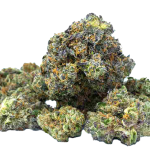CBD (Cannabidiol) has garnered considerable interest as a potential natural remedy for anxiety and stress relief. Anxiety disorders affect millions of people worldwide, and traditional treatment options may come with side effects or limited efficacy. In this article, we explore the therapeutic potential of CBD for stress and anxiety management.
- How CBD Works: CBD interacts with the endocannabinoid system (ECS), a complex network of receptors and neurotransmitters throughout the body that plays a role in regulating various physiological processes, including mood and stress responses. CBD does not directly bind with the cannabinoid receptors like THC; instead, it modulates the ECS, influencing the release of neurotransmitters and promoting a sense of balance and homeostasis.
- Anxiolytic Properties: Preclinical and some clinical studies suggest that CBD UK may have anxiolytic (anxiety-reducing) properties. By interacting with serotonin receptors in the brain, CBD may help regulate serotonin levels, a neurotransmitter known for its role in mood regulation. This interaction could contribute to CBD’s potential calming and anxiety-reducing effects.
- Non-Psychoactive Nature: Unlike THC, CBD is non-psychoactive, meaning it does not produce the euphoria or “high” associated with marijuana use. This makes CBD a more appealing option for individuals seeking anxiety relief without the risk of intoxication or cognitive impairment.
- Social Anxiety: Some research has focused on CBD’s potential in managing social anxiety disorder. A 2011 study found that individuals with social anxiety experienced reduced anxiety levels after taking CBD before a public speaking test. Another study in 2019 suggested that CBD might improve symptoms related to social anxiety by influencing brain activity in specific regions associated with anxiety processing.
- Generalized Anxiety Disorder (GAD): While more research is needed, there is growing interest in exploring CBD’s potential for managing generalized anxiety disorder. Early evidence from animal studies and small human trials indicates that CBD might help reduce anxiety symptoms, but further research with larger sample sizes is required to confirm its efficacy.
- Post-Traumatic Stress Disorder (PTSD): CBD’s potential for managing symptoms of PTSD has also been a subject of investigation. Some studies have shown that CBD may help reduce fear and anxiety responses related to traumatic memories, which could be beneficial for individuals with PTSD.
- Sleep and Anxiety: Since anxiety and sleep disorders often coexist, CBD’s potential to improve sleep quality may indirectly contribute to anxiety relief. By promoting relaxation and reducing anxiety, CBD may aid individuals in achieving better sleep, which can positively impact their overall well-being.
It’s important to note that while CBD shows promise for anxiety relief, it is not a one-size-fits-all solution, and individual responses may vary. Consulting with a healthcare professional is essential before using CBD to manage anxiety, especially for individuals taking other medications or with underlying health conditions.
In conclusion, the therapeutic potential of CBD for stress and anxiety relief is an area of ongoing research. While evidence suggests its anxiolytic properties and potential benefits for managing various anxiety disorders, more extensive and rigorous studies are needed to fully understand its mechanisms and long-term effects. As we continue to explore CBD’s potential, it could become a valuable addition to anxiety management approaches for those seeking natural alternatives for stress relief.









